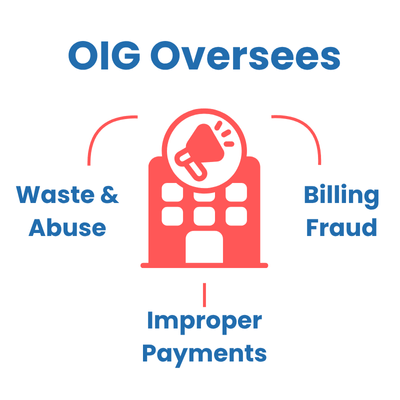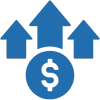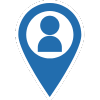Protect your agency from audits. Learn how to meet OIG billing guidelines with proper codes, EVV, and clinical documentation.
Introduction
Billing compliance in home care is more than a financial obligation; it is a legal and operational necessity. As regulations grow more complex, many agencies unknowingly fall out of line, putting themselves at risk of costly audits, penalties, and claw backs of Medicare or Medicaid reimbursements. The Office of Inspector General (OIG) plays a central role in identifying and enforcing against fraud, waste, and abuse in federally funded healthcare programs, including home care. Even minor documentation or billing errors can trigger significant scrutiny and jeopardize your agency’s reputation and revenue.
This guide is designed to help home care providers understand and align with OIG billing guidelines. From avoiding common violations to implementing proactive compliance strategies, you will learn practical steps to protect your agency, strengthen billing accuracy, and maintain regulatory confidence. Staying compliant is not just about avoiding penalties - it is about building a sustainable, trusted home care operation.
Understanding OIG’s Role in Home Care Compliance
The Office of Inspector General (OIG) is an independent oversight body within the U.S. Department of Health and Human Services (HHS) tasked with protecting the integrity of federal healthcare programs - including Medicare and Medicaid. For home care providers, the OIG serves as a watchdog agency, ensuring that services billed to federal payers are medically necessary, properly documented, and delivered by qualified professionals.
The OIG’s primary focus areas include billing fraud, waste, abuse, and improper payments. This can range from intentional misconduct such as billing for services never rendered to unintentional errors like incorrect coding or incomplete documentation. Even routine oversights can lead to significant consequences, including financial penalties, exclusion from federal programs, or criminal charges.
The OIG regularly updates its Work Plan for Home Health and Home Care to highlight areas of concern. Reviewing this document can help agencies anticipate regulatory focus areas and align their operations accordingly.
In recent years, OIG enforcement has increased in response to rising fraud risks within home and community-based services. For example, in 2023, several home care agencies were fined or shut down after audits revealed patterns of upcoding and falsified visit records. These high-profile cases underscore the agency’s commitment to rooting out non-compliance and holding providers accountable.
Understanding the OIG’s role is essential for maintaining a compliant and credible home care operation. Agencies must stay current with evolving federal guidelines, implement internal checks, and foster a culture of transparency. In doing so, providers not only avoid enforcement actions but also position themselves for long-term stability in a heavily regulated industry.
Common OIG Violations in Home Care Billing
Staying compliant with OIG billing guidelines requires understanding the most frequent violations that trigger audits and penalties. Below are the common billing issues that home care agencies must vigilantly avoid:
Upcoding or Inflating Services
Upcoding involves billing for a service at a higher level than what was actually provided. For example, a routine home visit might be falsely billed as a complex nursing service. This practice leads to overpayment and is considered fraudulent even if done unintentionally.
Billing for Services Not Provided or Not Medically Necessary
Submitting claims for services that were never rendered or were not deemed medically necessary by a physician is a serious offense. This includes billing for phantom visits or services beyond the scope of a patient’s care plan.
Inaccurate Time Logs or Visit Documentation
Electronic Visit Verification (EVV) has made it easier to track caregiver activities, but falsified or incorrect time entries still occur. Discrepancies between scheduled and documented visit times or missing documentation altogether can raise red flags with the OIG. Billing for services that are not documented or medically necessary is one of the top violations identified in Medicare Billing Guidelines for Home Health Services. Following these documentation requirements is essential for compliance.
Misuse of Provider Numbers or Unlicensed Staff
Using another provider’s National Provider Identifier (NPI) or allowing unlicensed or non-certified staff to perform billable services is a violation of federal billing regulations. Each claim must accurately reflect who provided the care and their credentials.
Falsified Patient Signatures or Records
Altering patient records or forging patient signatures to support billing claims is not only unethical but also illegal. These actions can result in criminal charges and permanent exclusion from federal healthcare programs.
Recognizing and preventing these violations is critical to maintaining compliance and protecting your agency from enforcement actions.
How to Stay Compliant: Best Practices for Home Care Agencies
Maintaining compliance with OIG billing guidelines requires more than awareness it demands a proactive strategy that integrates accurate documentation, real-time timekeeping, and timely claims management. Below are the best key practices to help home care agencies stay audit-ready while improving operational efficiency. CareVoyant Home Care Software solutions can play a critical role in ensuring these standards are consistently met.
Accurate and Complete Clinical Documentation
Accurate clinical documentation is the foundation of compliant billing. Every service provided must be documented clearly and tied directly to the patient’s care plan and physician orders.
Real-time charting using mobile point-of-care apps: Using CareVoyant’s Point-of-Care Clinical Documentation tools, caregivers can enter patient data directly during visits. This reduces documentation gaps and minimizes the risk of errors or retroactive charting.
Capturing visit notes, caregiver credentials, and time-in/time-out: CareVoyant automatically records visit details and ensures caregiver credentials align with payer requirements.
Linking services to physician orders and care plans: The platform allows seamless alignment between scheduled visits and the latest physician-approved care plans, ensuring services billed meet medical necessity.
Retaining supporting documentation for audits: Centralized digital records in CareVoyant help agencies maintain audit-ready files for every patient encounter, reducing the risk of non-compliance.
Ensuring medical necessity and physician orders: Automated workflows ensure that every billed service is supported by an approved order, eliminating discrepancies during audits.
These features directly align with OIG’s requirement for complete, medically necessary, and verifiable documentation.
Timekeeping Best Practices for EVV (Electronic Visit Verification)
Proper time tracking through EVV is a critical defense against fraud, waste, and abuse in home care services.
How EVV supports accurate service verification: EVV ensures that visits occur as scheduled, verifying time-in, time-out, and caregiver location through GPS or telephony. This protects against false claims.
Mandates under the 21st Century Cures Act: All Medicaid personal care and home health services must be verified electronically. CareVoyant’s EVV Software is fully compliant with federal and state-specific requirements.
State-specific EVV rules and implementation: CareVoyant supports integrations with multiple state-mandated EVV aggregators, ensuring accurate data reporting across jurisdictions.
Reducing fraud and ensuring visit authenticity: By automating visit verification, CareVoyant reduces the risk of manual time entry errors and eliminates the potential for falsified visits.
This automated EVV integration ensures billing integrity while meeting OIG and CMS requirements for visit verification.
Timely Submission of Clean Claims
Submitting accurate claims on time is essential to maintaining steady cash flow and staying within payer-specific guidelines.
Proper use of billing codes (HCPCS, CPT): CareVoyant includes regularly updated code libraries and claim validation tools to ensure the correct use of HCPCS and CPT codes.
Home Care Billing Software with built-in compliance check: The Integrated Billing and Revenue Cycle Management module in CareVoyant flags billing discrepancies before claims are submitted, helping agencies catch errors early.
Understanding Medicare, Medicaid, and private payer billing policies: CareVoyant’s customizable rules engine accommodates various payer requirements, helping agencies remain compliant across multiple programs.
Staying updated with CMS and OIG bulletins: The platform offers configurable alerts and updates to help staff stay informed about new regulatory changes.
Importance of pre-bill reviews and payer authorizations: CareVoyant includes Authorization Management tools that track prior authorizations and automatically align them with claims to prevent denials.
Responding to audits and documentation requests: With a centralized system of record, CareVoyant simplifies retrieval of supporting documentation and generates audit-ready reports in seconds.
These tools work in concert to reduce claim denials, speed up reimbursement, and ensure agencies are always operating within payer and OIG parameters.
By addressing every aspect of OIG’s core billing guidelines, CareVoyant empowers home care agencies to stay compliant, reduce risk, and grow confidently in a highly regulated environment.
Conclusion
Staying compliant with OIG billing guidelines is not just about avoiding penalties. It is about protecting your home care agency’s reputation, revenue, and long-term viability. In today’s heavily regulated healthcare environment, even small oversights can lead to serious consequences such as audits, repayment demands, or exclusion from Medicare and Medicaid programs.
To maintain compliance, home care agencies must take a proactive and strategic approach. This includes providing ongoing staff training, conducting regular internal audits, ensuring accurate and complete clinical documentation, and following proper billing and coding procedures. Leveraging Electronic Visit Verification (EVV) and aligning every service with medical necessity and physician orders are also essential.
Most importantly, adopting an all-in-one CareVoyant Home Care Billing Software can significantly simplify and strengthen your compliance efforts. With integrated tools for point-of-care documentation, EVV, authorization management, and revenue cycle optimization, CareVoyant helps agencies reduce errors, stay audit-ready, and improve overall financial health.
By committing to these best practices and using the right technology, your agency can confidently meet OIG standards, reduce risks, and continue delivering high-quality care to those who need it most.
Frequently Asked Questions
-
The OIG requires home care providers to submit accurate, medically necessary claims backed by complete documentation and proper use of billing codes.
-
OIG compliance helps avoid audits, penalties, and exclusion from federal programs like Medicare and Medicaid, while maintaining a trusted reputation.
-
Frequent violations include upcoding, billing for undocumented services, inaccurate EVV logs, use of unlicensed staff, and falsified records.
-
EVV verifies visit times and caregiver presence using GPS or telephony, reducing fraud risk and meeting federal and state documentation requirements.
-
Accurate, real-time clinical documentation supports medical necessity and ensures services align with physician orders and patient care plans.
-
By using audit-ready software like CareVoyant and ensuring every billed service is documented and linked to a valid care plan and physician order.
-
Agencies should use correct HCPCS and CPT codes, verify payer-specific requirements, and conduct pre-bill reviews to avoid denials.
-
Regular internal audits are recommended to identify billing errors early, correct discrepancies, and prepare for potential OIG reviews.
-
Yes. Platforms like CareVoyant offer integrated EVV, documentation, and billing tools to help agencies automate compliance and reduce errors.
-
They should provide complete supporting documentation, respond promptly, and use centralized systems like CareVoyant to retrieve audit-ready data.
About CareVoyant
CareVoyant is a leading provider of cloud-based integrated enterprise-scale home health care software that can support all home-based services under ONE Software, ONE Patient, and ONE Employee, making it a Single System of Record. We support all home based services, including Home Care, Private Duty Nursing, Private Duty Non-Medical, Home and Community Based Services (HCBS), Home Health, Pediatric Home Care, and Outpatient Therapy at Home.
CareVoyant functions – Intake, Authorization Management, Scheduling, Clinical with Mobile options, eMAR/eTAR, Electronic Visit Verification (EVV), Billing/AR, Secure Messaging, Notification, Reporting, and Dashboards – streamline workflow, meet regulatory requirements, improve quality of care, optimize reimbursement, improve operational efficiency and agency bottom line.
For more information, please visit CareVoyant.com or call us at 1-888-463-6797.
Request for Information
To learn more about CareVoyant Software and how we improve the operational efficiency of Home Healthcare Agencies, contact us:













